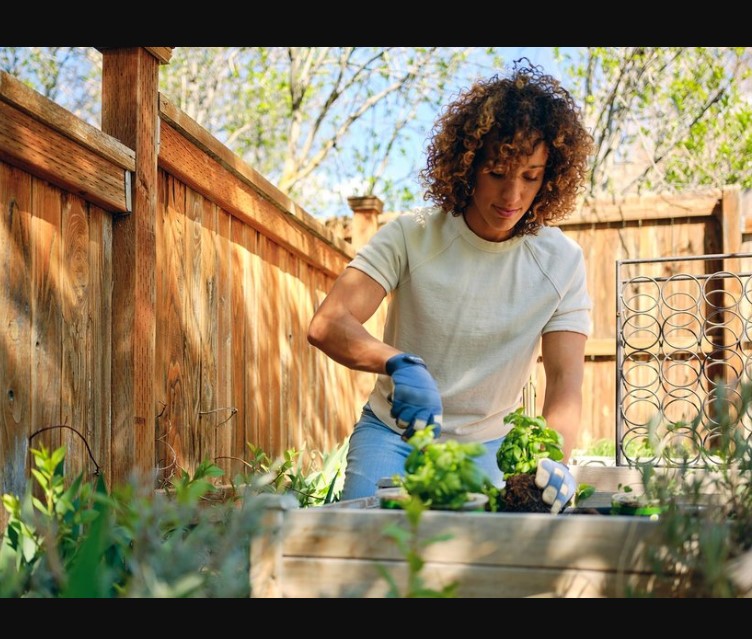Few endeavors in gardening rival the satisfaction and benefits of cultivating herbs. Herb gardening transcends mere plant care; it’s a sensory journey encompassing delight, culinary exploration, and holistic wellness. Whether you possess a vast backyard or a modest windowsill, engaging in herb gardening offers a gratifying and accessible way to commune with nature and bolster your well-being.
Exploring the Essence of Herb Gardening:
Herb gardening extends beyond a pastime; it embodies a lifestyle. The allure of herbs lies in their multifaceted utility—they serve culinary, medicinal, aromatic, and aesthetic purposes. From the robust scent of basil to the delicate aroma of lavender, each herb possesses distinctive allure and usefulness.
Culinary Delights: Herbs serve as the foundation of culinary excellence. Fresh basil enhances a tomato salad, while a sprig of rosemary imparts complexity to roasted potatoes. Herb gardening allows for the infusion of vibrant flavors into cooking that dried store-bought herbs cannot match.
Medicinal Marvels: Historically, herbs have been treasured for their medicinal attributes. From comforting chamomile tea to potent echinacea tinctures, herbs offer a natural and comprehensive approach to health and well-being. By cultivating your medicinal herbs, you can access fresh and potent remedies for common ailments.
Aromatic Ambiance: Herbs can metamorphose a space, imbuing it with captivating scents that soothe the soul and elevate the spirit. Lavender, renowned for its calming fragrance, promotes relaxation and stress reduction, while peppermint invigorates the senses and fosters mental clarity.
Initiating Your Herb Gardening Journey:
Embarking on an herb gardening venture is more straightforward than one might imagine. Whether you possess seasoned gardening expertise or a budding green thumb, here are essential pointers to kickstart your endeavor:
Choose the Optimal Location: Most herbs flourish in sun-drenched locales with well-draining SoilSoil. Whether planting in garden beds, raised plots, or containers, ensure your herbs bask in at least six hours of sunlight daily.
Select Your Herbs Thoughtfully: Tailor your herb selection to culinary inclinations, medicinal necessities, and aesthetic preferences. Popular choices such as basil, thyme, mint, parsley, sage, and rosemary offer versatility but feel free to experiment with lesser-known varieties.
Prepare the SoilSoil Adequately: Enrich the SoilSoil with organic matter like compost or aged manure to enhance drainage and fertility before planting. Herbs thrive in slightly alkaline soil, so consider incorporating lime if your soil tends to be acidic.
Planting and Maintenance: Adhere to each herb’s specific requirements for spacing and planting depth. Maintain consistent soil moisture without waterlogging and diligently eradicate weeds that vie for nutrients and moisture.
Nurturing Wellness Through Herb Gardening:
Beyond their practical utility, herbs profoundly influence our overall well-being. Here’s how herb gardening can enrich your life:
Stress Alleviation: While gardening alleviates stress and promotes relaxation, herb gardening elevates this experience. Tending to your herbs—trimming, watering, and harvesting—can evolve into a meditative ritual that soothes the mind and revitalizes the spirit.
Connection with Nature: Feeling disconnected from nature is accessible in an increasingly urbanized landscape. Herb gardening offers a tangible means to reconnect with the natural world’s rhythms, fostering an appreciation for growth and renewal cycles.
Sustainable Living: Cultivating your herbs yields satisfaction, and yields satisfaction, and promotes environmental sustainability. By diminishing reliance on store-bought herbs, you reduce the carbon footprint associated with transportation and packaging while sidestepping chemical pesticides and fertilizers.
Empowerment and Self-Sufficiency: Growing your food and medicine instills a sense of empowerment. Herb gardening affords you control over what enters your body, prioritizing freshness, quality, and sustainability.
Harvesting and Preservation Techniques:
One of herb gardening’s joys is harvesting fresh herbs for immediate use or preservation. Consider these tips for optimal harvesting and preservation:
Timing Matters: Harvest herbs in the morning, after dew evaporation, when essential oils are most concentrated. Avoid midday harvesting to prevent wilting and ensure herbs retain flavor and aroma.
Prune with Precision: Utilize sharp scissors or pruning shears to execute clean cuts just above a leaf node. This fosters new growth and sustains plant vitality.
Preservation Methods: Choose from various preservation techniques, including drying, freezing, and oil or vinegar infusion. Tailor the method to suit the herb and your culinary preferences, relishing summer flavors year-round.
In Conclusion:
Amidst a world fraught with stress and uncertainty, herb gardening offers a sanctuary of tranquility and sustenance for both body and soul. Whether an experienced gardener or an intrigued novice, there’s profound satisfaction in nurturing a garden brimming with fragrant herbs and reaping bounteous rewards. So, don your gardening gloves, delve into the SoilSoil, and allow the enchantment of herb gardening to transform your life, one leaf at a time.

